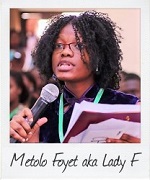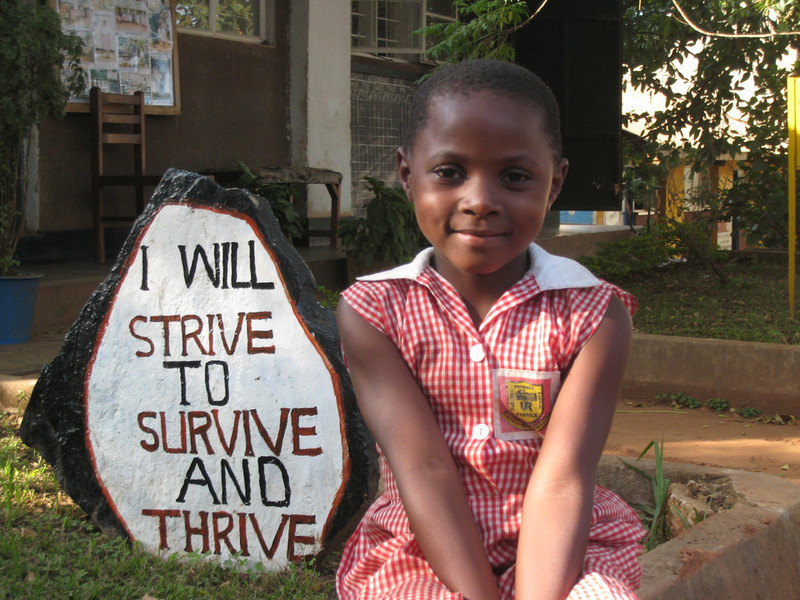The ABCs of education
March 2nd, 2020
A well-rounded individual is the product of three schools, each of them as important as the next. Commonwealth Correspondent Metolo Foyet, 21, from Cameroon discusses the merits of learning in the home, in the classroom, and from the good old ‘school of life’.
Education at home is by far the most crucial of all types of learning. If you fail at this, you will be like a jar with holes. At home, you are taught the basics of savoir-vivre—a knowledge of the world and the etiquette of getting along in society. You are given some of what is taught in school but are also equipped for life beyond the home.
Education at home is made up of advice given by parents. At home, you are taught the basics, for example that stealing is not good. But you also get introduced to values, such as family comes first.
But you don’t just learn day-to-day things. Other lessons are also taught. An awareness of politics, for instance, starts at home. The moment your request is sanctioned by a “that’s not how things work here”, while your sibling’s wish was granted just an hour ago, that’s politics at play. You better learn how to start negotiating.
Now, you can’t tell me your ancestors were born in the city. You have an identity and roots and need to be knowledgeable about the customs of your people. Cultural education is not compulsory, but you ignore it at your own risk. Don’t cry later if you get mocked because you don’t know the meaning of your name, or when you get lost in the thousands of festivals, holidays, cuisine and languages out there without knowing a thing about your own.
And we can’t forget good old religion. Most of our families belong to one faith or another. Whether you like it or not, being born into a religious family means going along with the family’s faith until you are old enough to decide otherwise. At the root of all faiths are the same values: live well, that’s all that humanity and nature request from you.
Education in the classroom is the most common type of education. It updates and deepens the little knowledge we have gathered all the way from the womb to the moment we first step into school. For example, children are taught about the osmosis of a potato. When you want to remove extra moisture from potatoes, you put them in salty water. The teacher explains why salt should be added, how it affects the cells of the potato, and so on. For some of the students, this triggers their interest in agriculture, science or the food industry.
School is a continued exposure to all the aspects of the world we live in, through sciences and arts. At an advanced stage, it prepares us to join a profession.
Lastly, education from life is just as important as the other two, if not the most important. The school of life is devoid of theory—there are only practicals. There are lessons only life can teach you—and you definitely need to pay attention to these. Not everything needs to be positive, but each experience is there for a reason. Find that reason and learn from it. But don’t take things too personally. Relax and have fun living.
Now, the real test is in knowing which of these types of education should come into play in the various situations you may encounter in life.
Photo credit: Tom Baird/Commonwealth Secretariat
……………………………………………………………………………………………………………………………….
About Metolo Foyet: I am a social entrepreneur with a focus on education, agriculture and cybersecurity. I have a track record of adding value to organisations by delivering innovative projects that engage stakeholders. I have expertise in public affairs, strategic communications, translation, research and development, product design, grassroots development and project management across the not-for-profit and private sectors. I paint, write, and am an environmental, travel and sports enthusiast. I envision a career in the public service, especially the UN.
……………………………………………………………………………………………………………………………….
Opinions expressed in this article are those of the author and do not necessarily represent the views of the Commonwealth Youth Programme. Articles are published in a spirit of dialogue, respect and understanding. If you disagree, why not submit a response?
To learn more about becoming a Commonwealth Correspondent please visit: http://www.yourcommonwealth.org/submit-articles/
……………………………………………………………………………………………………………………………….




